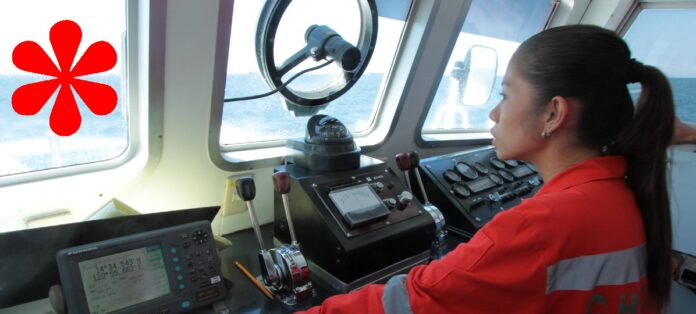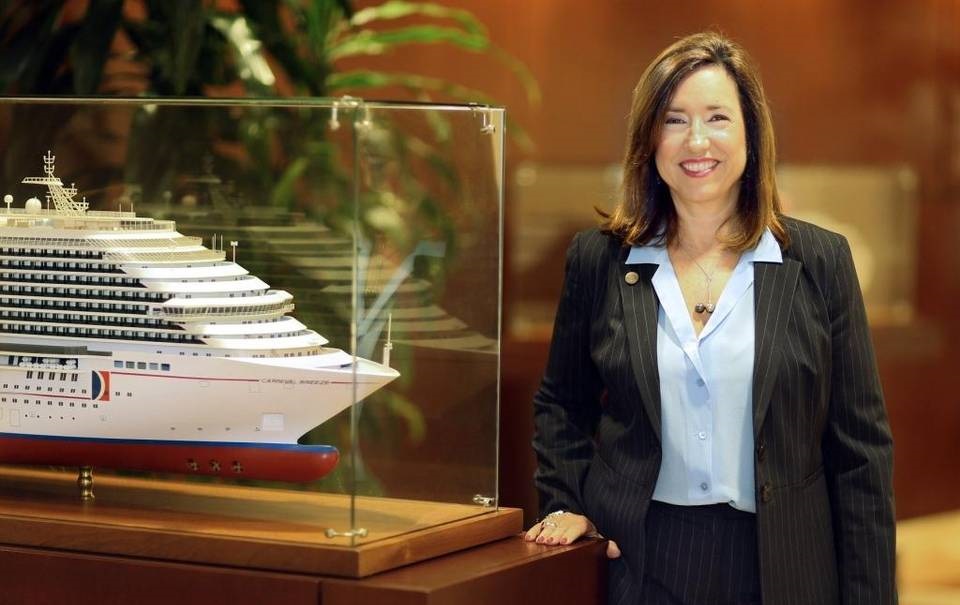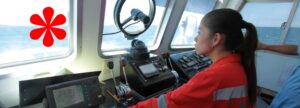
Shipping has historically been a male-dominated industry and that tradition runs long and deep. However, through its global programme on the Integration of Women in the Maritime Sector, IMO is making a concerted effort to help the industry move on from that tradition and to help women achieve a representation within it that is more in keeping with twenty-first century expectations.
Maritime women - Global leadership

Another IMO film, Women at the helm, shows how the work of IMO, and others, is beginning to promote change for the better for women in shipping, and highlights first-hand experiences from some of those who have already succeeded.
The film held its official launch during the regional conference in the Republic of Korea, held in April 2013, on the development of a global strategy for women seafarers.
The conference, held in Busan, Republic of Korea, organized and funded by the Government of the Republic of Korea through the Ministry of Oceans and Fisheries (MOF), and hosted by the Korean Institute of Maritime and Fisheries Technology (KIMFT), together with IMO, adopted a declaration of intent towards the development of a Global Strategy for Women Seafarers.
The conference adopted the Busan Declaration, in which the participants agreed to forge partnerships and solicit support of government agencies, as well as international and regional bodies to facilitate the implementation of a Global Strategy for Women Seafarers.

IMO's programme on the Integration of Women in the Maritime Sector (IWMS) has a primary objective to encourage IMO Member States to open the doors of their maritime institutes to enable women to train alongside men and so acquire the high-level of competence that the maritime industry demands. The IWMS programme includes but is not limited to, strengthening national and regional capacities through gender-specific fellowships; facilitating access to high-level technical training for women in the maritime sector in developing countries; and facilitating the identification and selection of women by their respective authorities for career development opportunities in maritime administrations, ports and maritime training institutes.
Regional harmonization has been a second key priority under this programme, resulting in the establishment, through IMO support, of seven regional associations for women in the maritime sector across Africa, Asia, the Caribbean, Latin America, the Middle East and the Pacific Islands. Access to these regional networks have provided members with a platform to discuss gender issues; a golden thread of worldwide maritime communication and improved implementation of IMO instruments.

IMO continues to support the participation of women in both shore-based and sea-going posts, in line with the goals outlined under the United Nations Sustainable Development Goal 5: "Achieve gender equality and empower all women and girls", under the slogan: Training-Visibility-Recognition.
The testimony of the first 28 years of IMO's gender and capacity-building programme is that empowering women fuels thriving economies, spurs productivity and growth, and benefits every stakeholder in the global maritime community.
Source: IMO















